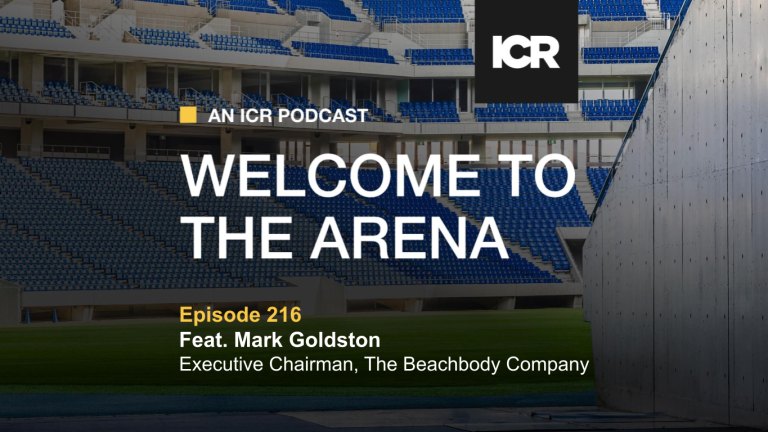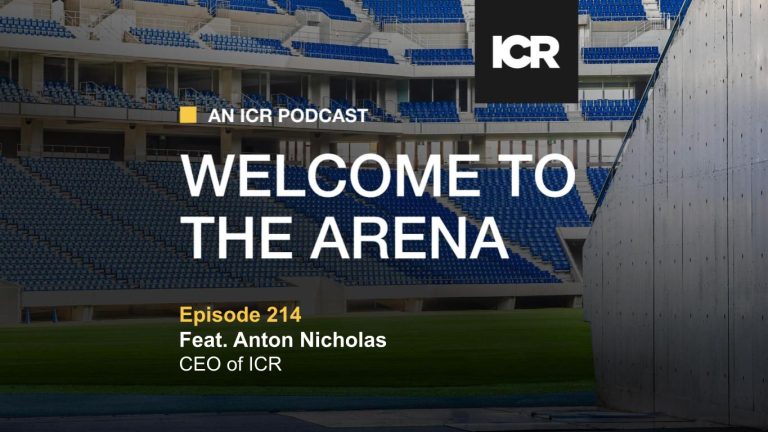As the private market investments sector grows, it’s become increasingly challenging for firms to establish themselves as players in the market — but StepStone Group has done just that.
StepStone is a solutions provider, partnering with asset owners to think about pension funds, sovereign wealth funds, endowments in foundations, insurance companies, and increasingly individual investors to help them build portfolios that are specifically designed to meet their needs. With a commitment to global operations, technology, and customized solutions, the firm has made a definitive mark on the industry.
To learn more, we spoke with StepStone CEO Scott Hart on a recent episode of the ICR podcast, Welcome to the Arena. Hart shared insights about the firm’s incredible growth over the past 15 years, its commitment to a global client base, and how it has built and maintained an entrepreneurial culture from the very beginning.
The Tail Winds of Growth
Hart points to three key secular tailwinds that allowed StepStone to grow so quickly and significantly. First: timing. When the company was founded in 2007, the private markets were growing in size and asset owners were growing more sophisticated — leading to the perfect opportunity to offer customized solutions.
Second: StepStone’s commitment to data and technology. Unlike in the public markets, where there’s a tremendous amount of information available to anyone who wants it, private market data tends to be far less accessible. “We made the decisions early on to invest in the technology that would allow us to capture and analyze the data that we had at our fingertips,” says Hart.
Finally, to better serve clients and more effectively invest around the world, StepStone recognized early on that it needed to build a global firm.
Private Markets Investment Globally
When StepStone was founded, “We focused a lot of our attention outside of the U.S.,” says Hart. “It’s an area that was less mature when we were founded, and that’s an investment that has paid off over time.” Today, about 70 percent of StepStone’s management advisory fees come from clients that are based outside of the U.S.
That global diversification has been particularly helpful from a fundraising standpoint. Originally, StepStone worked with some global clients on a fly-in, fly-out basis. “It wasn’t until we put local teams on the ground in those markets that we really started to see things take off,” Hart explains. “We were able to speak the same language, we were available to work with them on the ground in their own time zone, and the level of transparency and openness with those clients increased pretty dramatically.”
Now, StepStone’s 23 offices around the world are generally staffed with local professionals who speak the language and have built networks in those markets.
Expanding Capabilities Through Acquisition
When and how to expand are crucial choices in a company’s trajectory. In 2021, StepStone acquired Greenspring Associates, one of the leading investors in venture capital. “Our clients were asking us, “How can you help us build a leading, world-class global venture and growth portfolio?’” Hart says. “Joining forces with the Greenspring team has improved our ability to provide this solution to our clients.” Now, StepStone has an enhanced ability to cover the entire lifecycle of the innovation economy from early-stage venture capital through to late-stage and growth.
The acquisition has also grown StepStone’s general partner (GP) relationships. “We are now even more important to those GPs, and we’re seeing firsthand the benefits in terms of increased deal flow, as well as increased information and due diligence,” says Hart.
Building and Maintaining a Strong Corporate Culture
With a fast-growing company like StepStone, hiring the right people — those who are committed to an entrepreneurial and equity-oriented culture — is key to success. Early on in the company’s history, the team would get to the end of an interview with a potential candidate and ask the question, “Why do you want to join StepStone?”
“We’d have to stop and say, ‘No, really. We have no money, we have very few clients, and we’re just getting started,’” shares Hart. Almost without exception, the candidates would reference the website, which described the culture StepStone was looking to build. It emphasized collegiality, openness, professional development, as well as corporate values of integrity, fairness, and respect for all employees.
But it also emphasized the ability to specialize, so senior professionals could be entrepreneurial and build their practice area as if it were their own. “It helped attract people who wanted to operate in this type of performance-driven environment … one in which they would have the opportunity to participate in the success that they were helping to drive,” explains Hart.
The company continues to reinforce its entrepreneurial, equity-driven culture. About two years ago, the company established a founder’s award that made all 500+ employees at the time equity owners in StepStone. With this momentum, the company is positioned to maintain its position in the market for years to come.
For more insight into StepStone’s success and the private market investments sector, listen to the full podcast episode.



